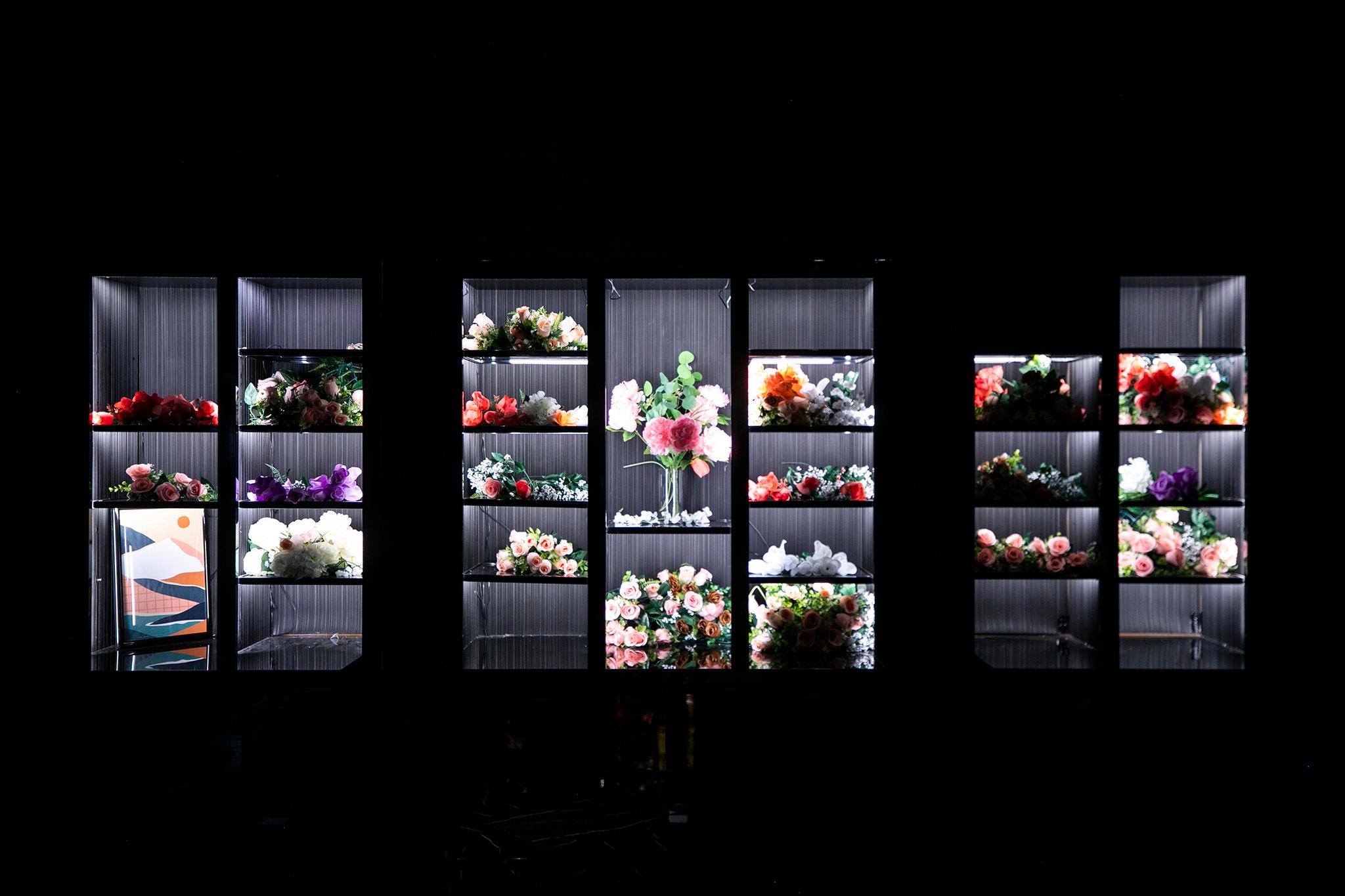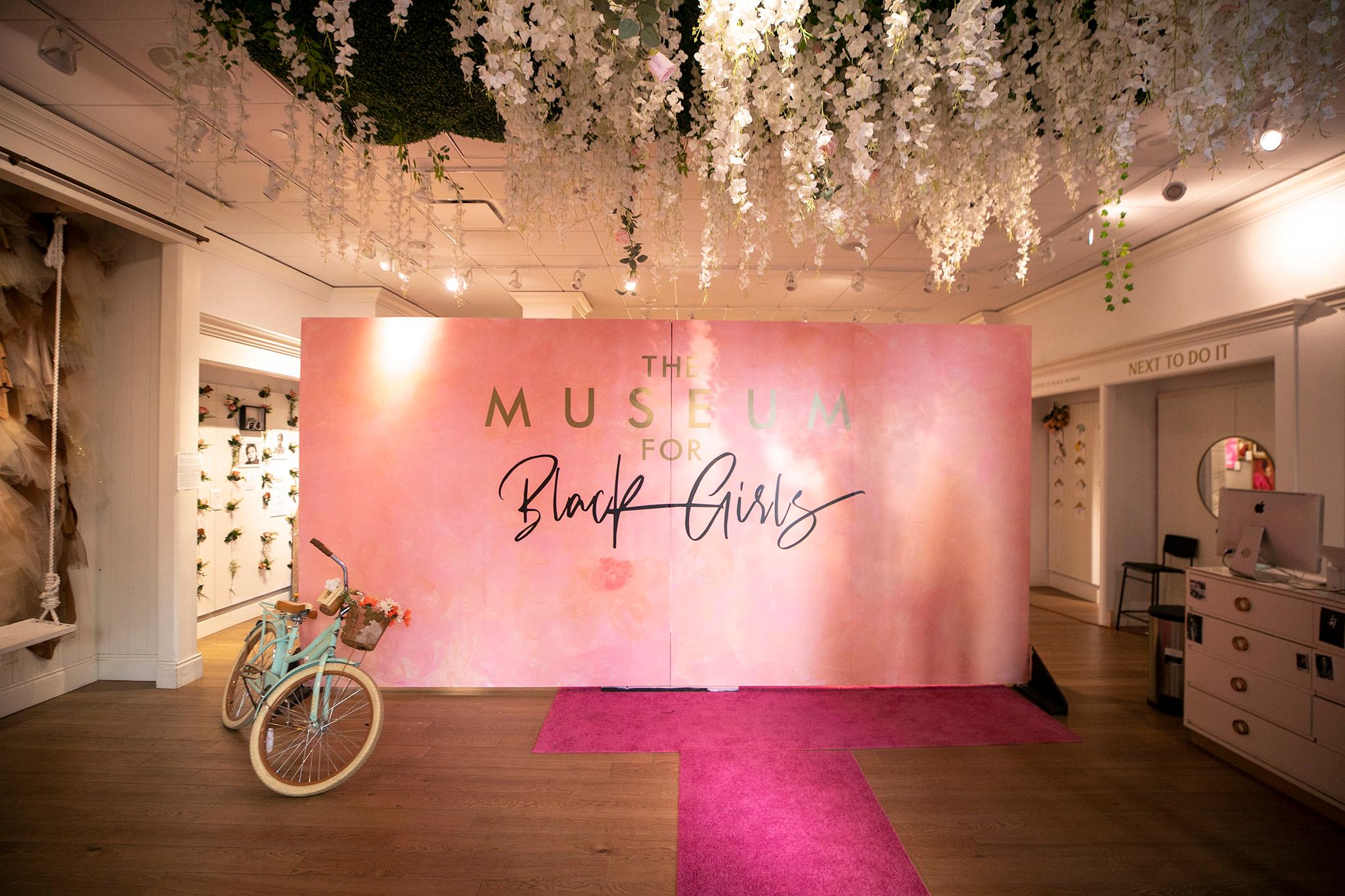On the second floor of the 16th Street Pavilion, you'll find a space adorned with pink walls, love letters and flowers. Strung flowers hang from the ceiling. Mounds of bouquets fill small backlit cubbies.
It's not a pop-up Valentine's Day shop, but the Museum for Black Girls essentially serves as a love letter to Black women and girls.
The interactive, immersive and Instagrammable space highlights Black women, their shared past, successful presents and lit futures.
The museum returned to Denver in September after traveling to different cities and is set to be on display for about a year through downtown's Popup Denver small business incubator program. In December, the museum celebrated its fourth anniversary.
"It was supposed to just be a one night event that has now turned into a four-year traveling pop-up," said Charlie Billingsley, founder of the museum. "Black women deserve to be celebrated...We've never had a space to celebrate all of the achievements and stories of Black women."
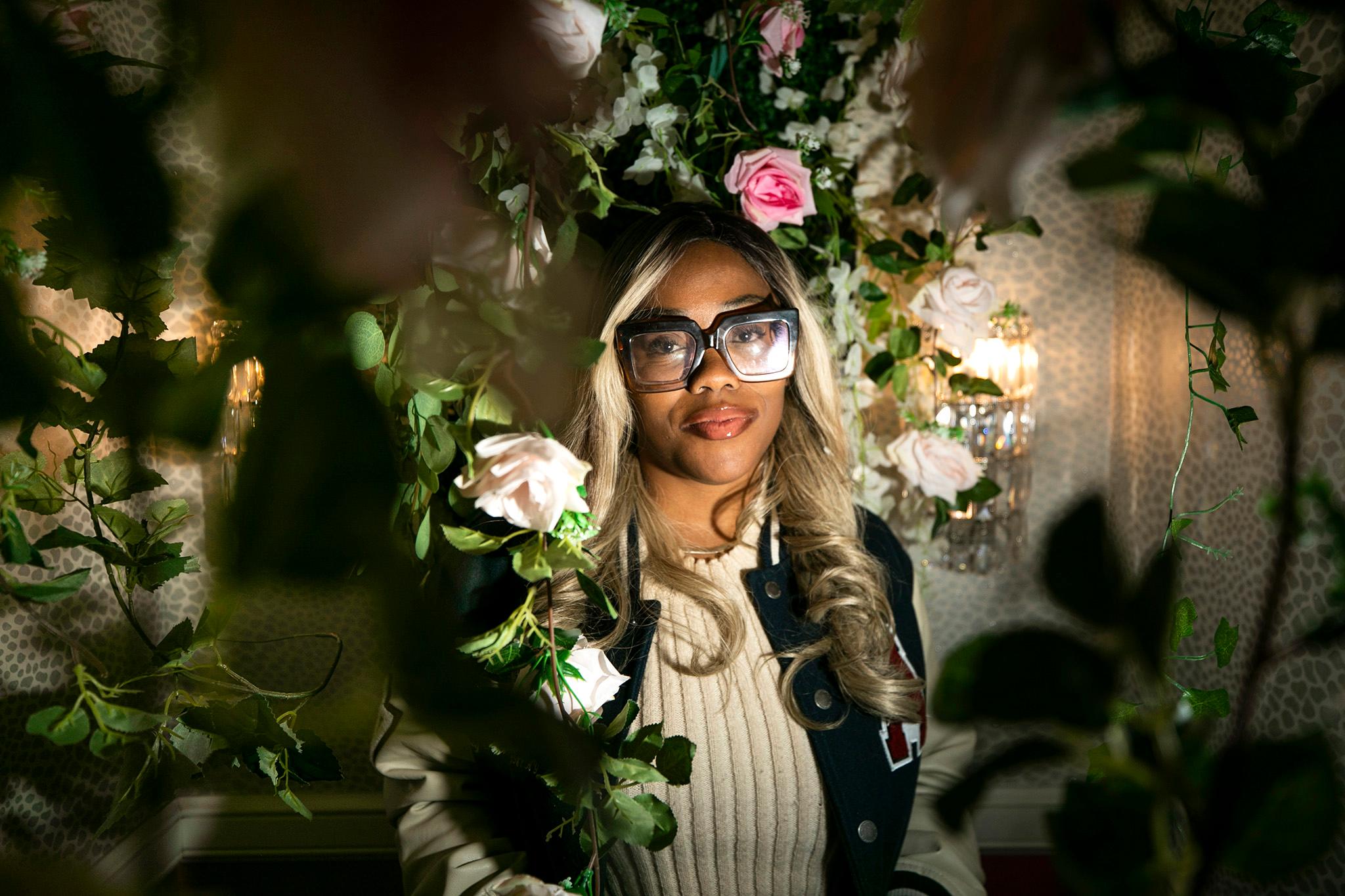
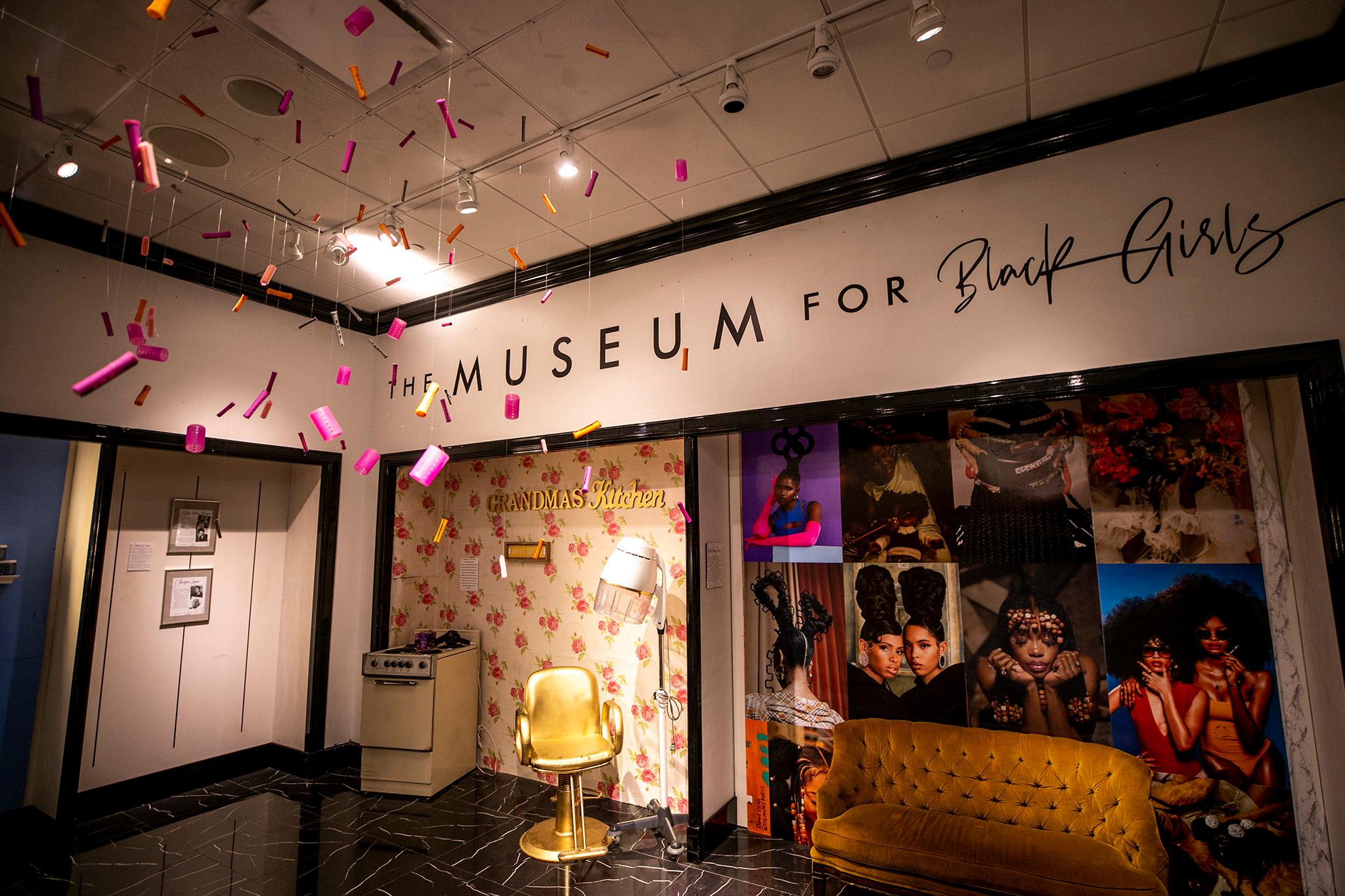
Billingsley is from Denver, a northeast Denverite whose career started off in photography centered around Black women and has now ventured into "creating spaces to amplify the voices of Black women and Black artists."
She is also really into celebrating her birthday. Every year, she said, she tries to think of cool ways to celebrate herself, and in 2019, she set out to celebrate with a much more communal purpose in mind.
Billingsley said she wanted to host a gallery night -- a meaningful selfie museum centered around Black women's experience with pieces representing childhood traditions leading into a history lesson of Black women's successes.
"I wanted to create a space where people know how vibrant Black women are," Billingsley said.
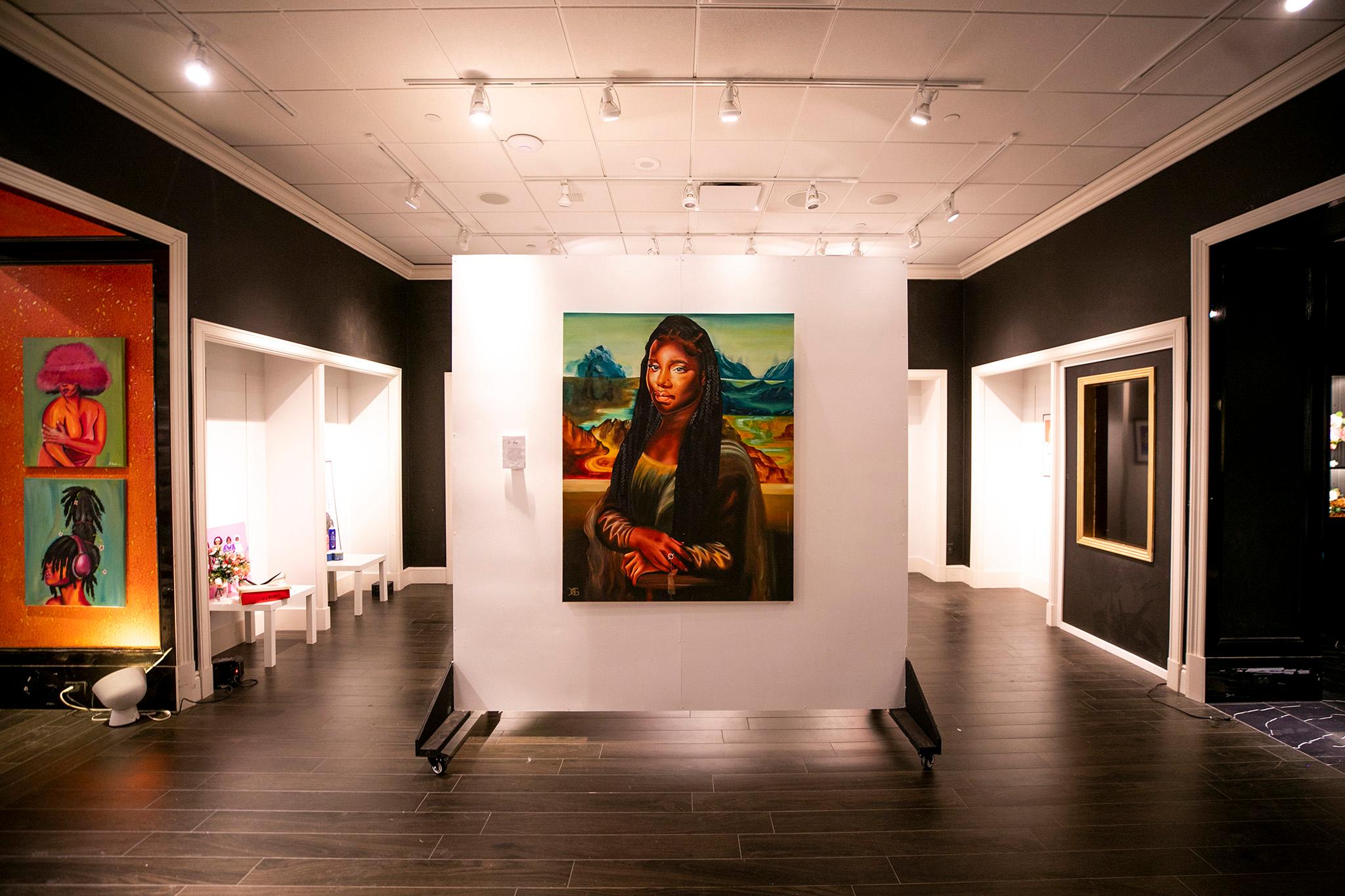
So Billingsley, with the help of her aunt Von Ross, curated an exhibit at a friend's boutique, enlisting local artists and showcasing some of Billingsley's own work, like "Grandma's Kitchen," a recreation of the place Billingsley used to get her hair done, her grandmother's kitchen. It was a space of Black excellence, nothing centered around trauma. Just positive histories and aspirations.
"I'm tired of being in spaces where we're constantly being reminded of our pain, of our trauma," Billingsley said. "People deserve to know those stories, but they also deserve to know the other side of us...We're artists. We play so many roles. We will joke with you, we will laugh, we will dance. We're the trendsetters of everything. We are inventors. Black women deserve to be celebrated for that."
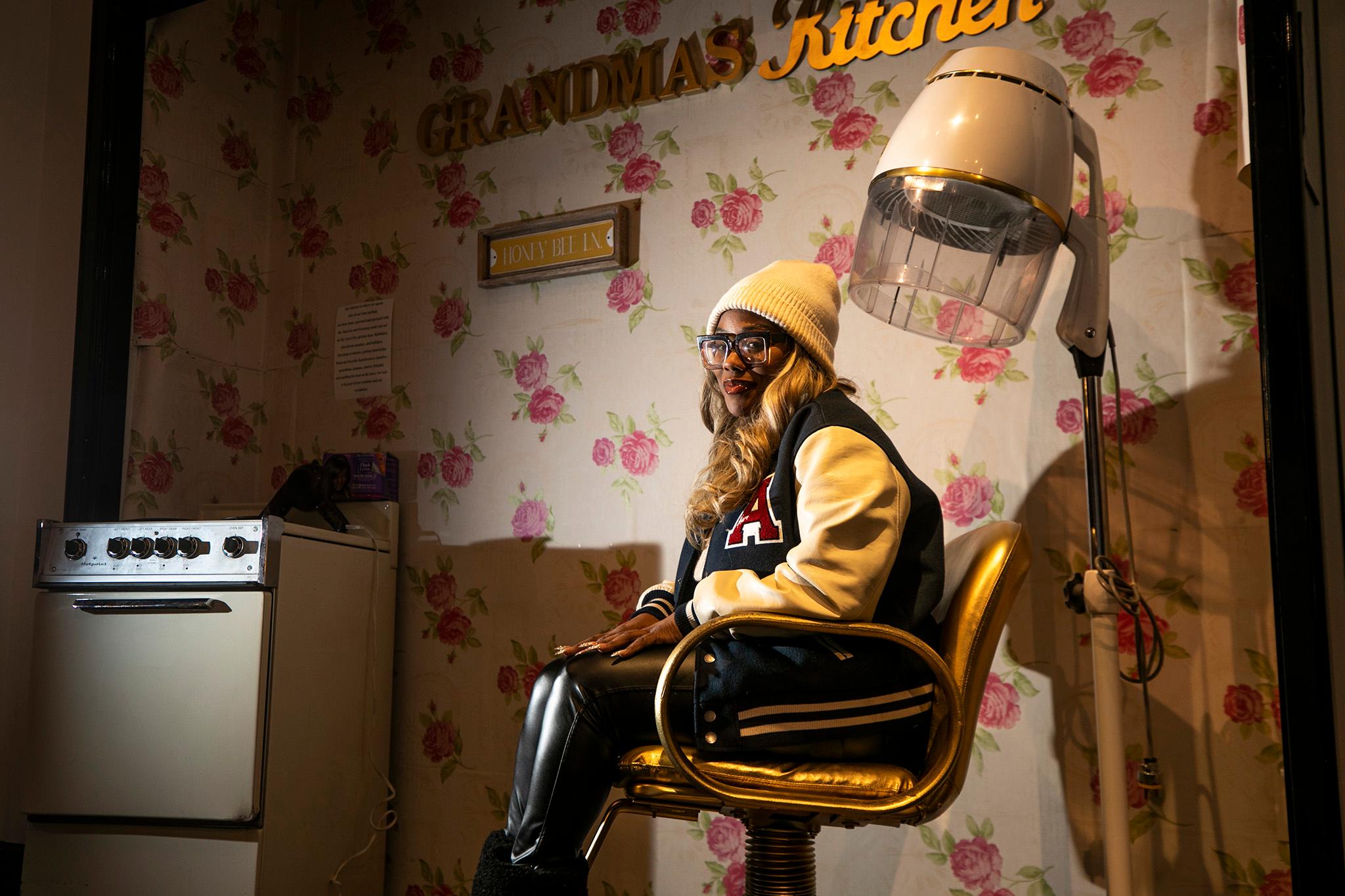
Her successful birthday celebration turned out to be the unofficial launch of a space where Black women and girls could gather, be around each other in bliss and feel like they belonged.
Billingsley said so many people approached her after the event to note how the space resonated with them. They recalled shared memories of getting their hair done in the kitchen. The products that were used. The brightly colored barrettes. They talked about the surprise of learning about Black women inventors and their love for current Black female leaders and influencers.
"As Black people, you have to have a Black community to feel connected and to feel safe. We've created safe spaces because as you navigate through the world, there's not very many people who look like you that are doing amazing things or those things aren't being amplified," Billingsley said. "You have to have that representation so that you know you can do those things, too."
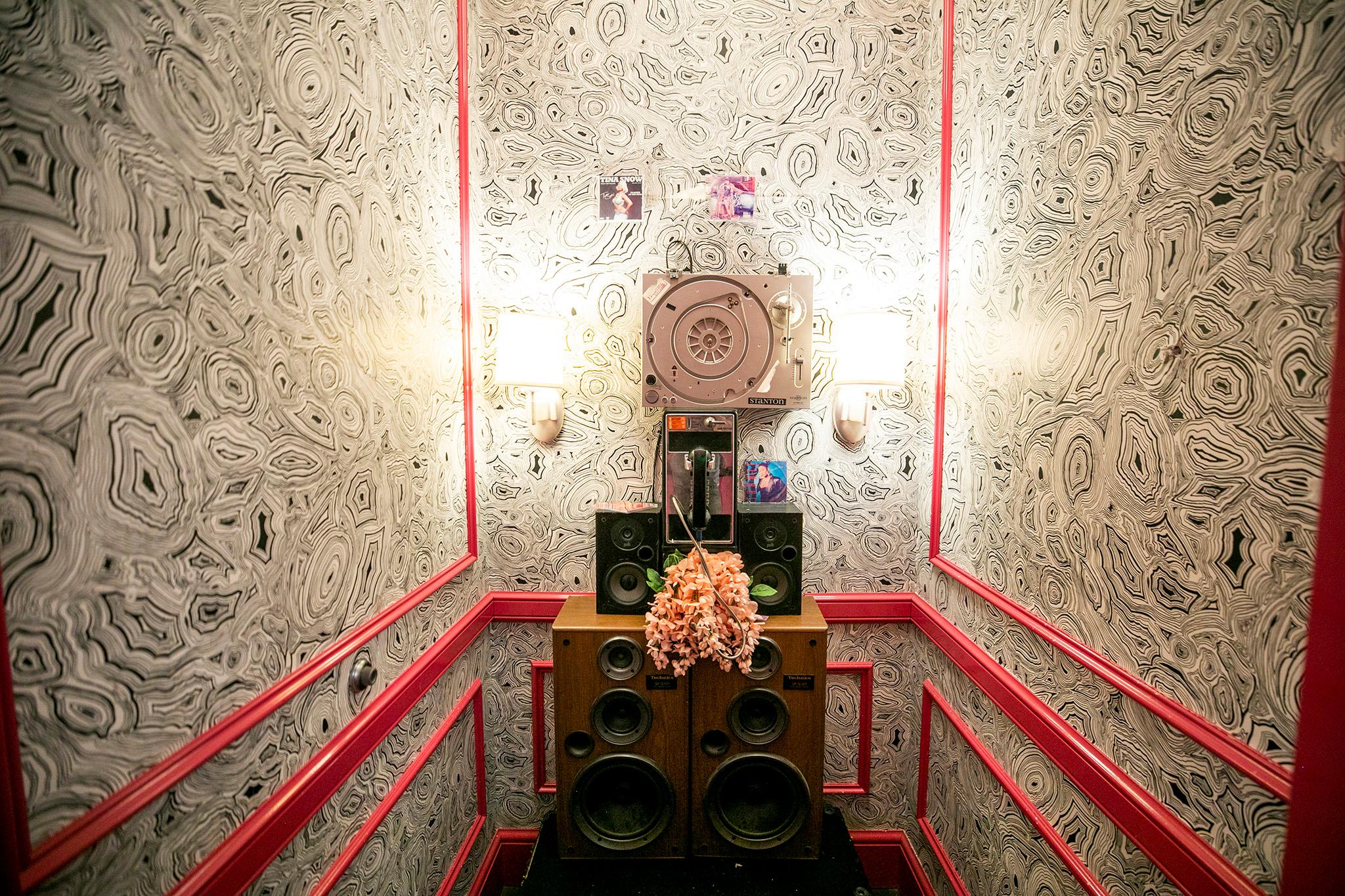
Billingsley said that, while the response to that night was great, but her aunt pushed her to make the one-night event into a more permanent exhibit.
"She was one of the first people to see the museum for more than it was. I said it's one night, it's my birthday and she was like no. She said, this is bigger than us. This is bigger than you," Billingsley said.
So, the pair set out to make the space permanent. The first iteration of the Museum for Black Girls opened in 2021 in the RiNo section of Five Points. It was a completely grassroots effort made possible through thrift store and Facebook marketplace finds, along with pieces from her grandma and aunt's garage.
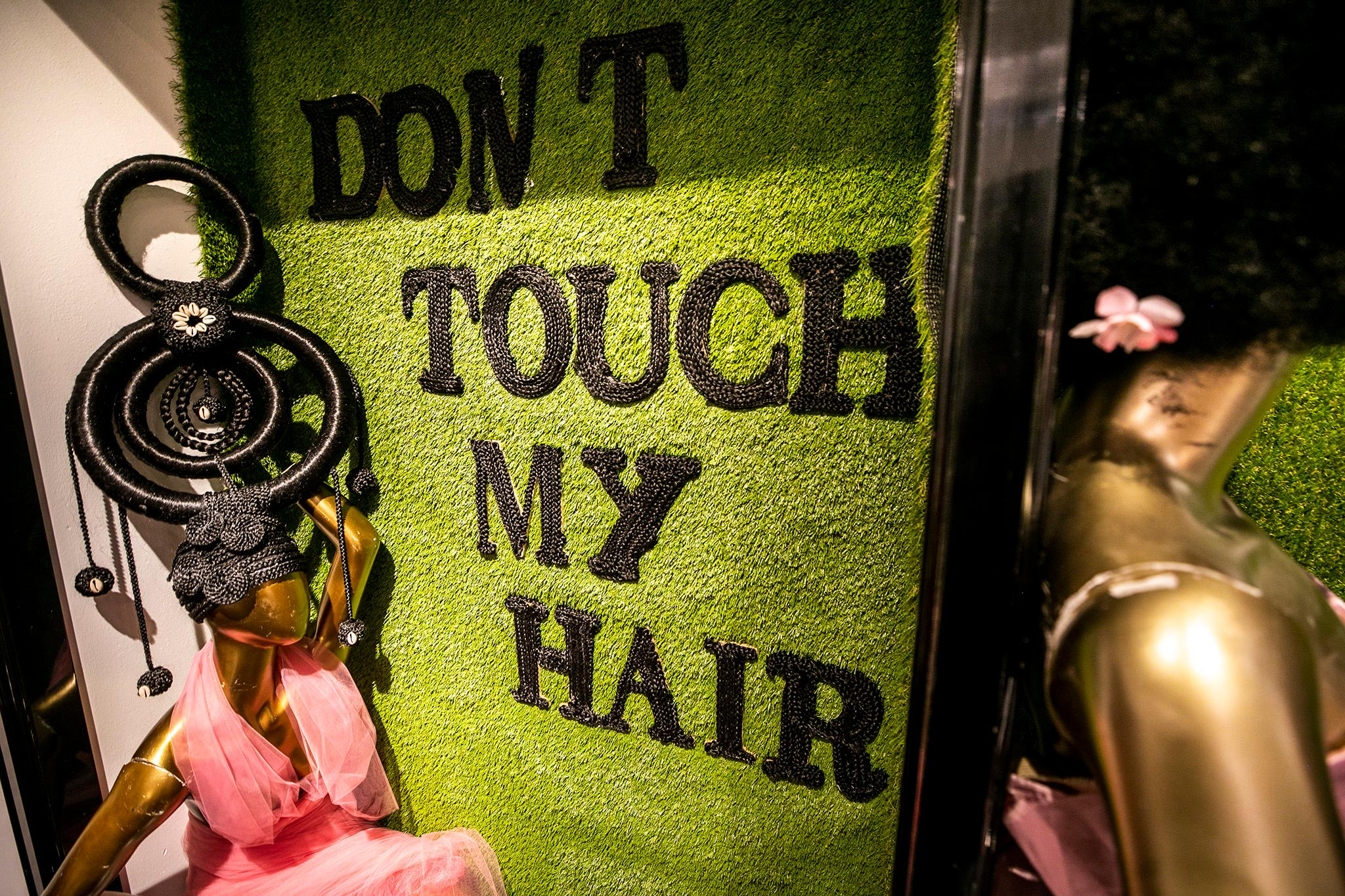
The RiNO space closed, and for the past few years, Billingsley took the exhibit on the road with popups in Washington D.C. and Houston.
Through the Popup Denver program, the museum returned home and officially relaunched in November. The space is near the Lucky Strikes and United Artist Movie Theatre, where the old Victoria Secret store used to be. The program, Billingsley said, has assisted with funding and marketing.
Inside, the museum is a celebration of Black women.
When you first walk into the space, the first installation staff may point you to is a mirror. Billingsley said when Ross is at the front desk, she'll tell guests that the mirror is there to "see yourselves as we see you, which is beautiful, strong, courageous, gifted, talented, smart, all the amazing Black girl magic things we've always been."
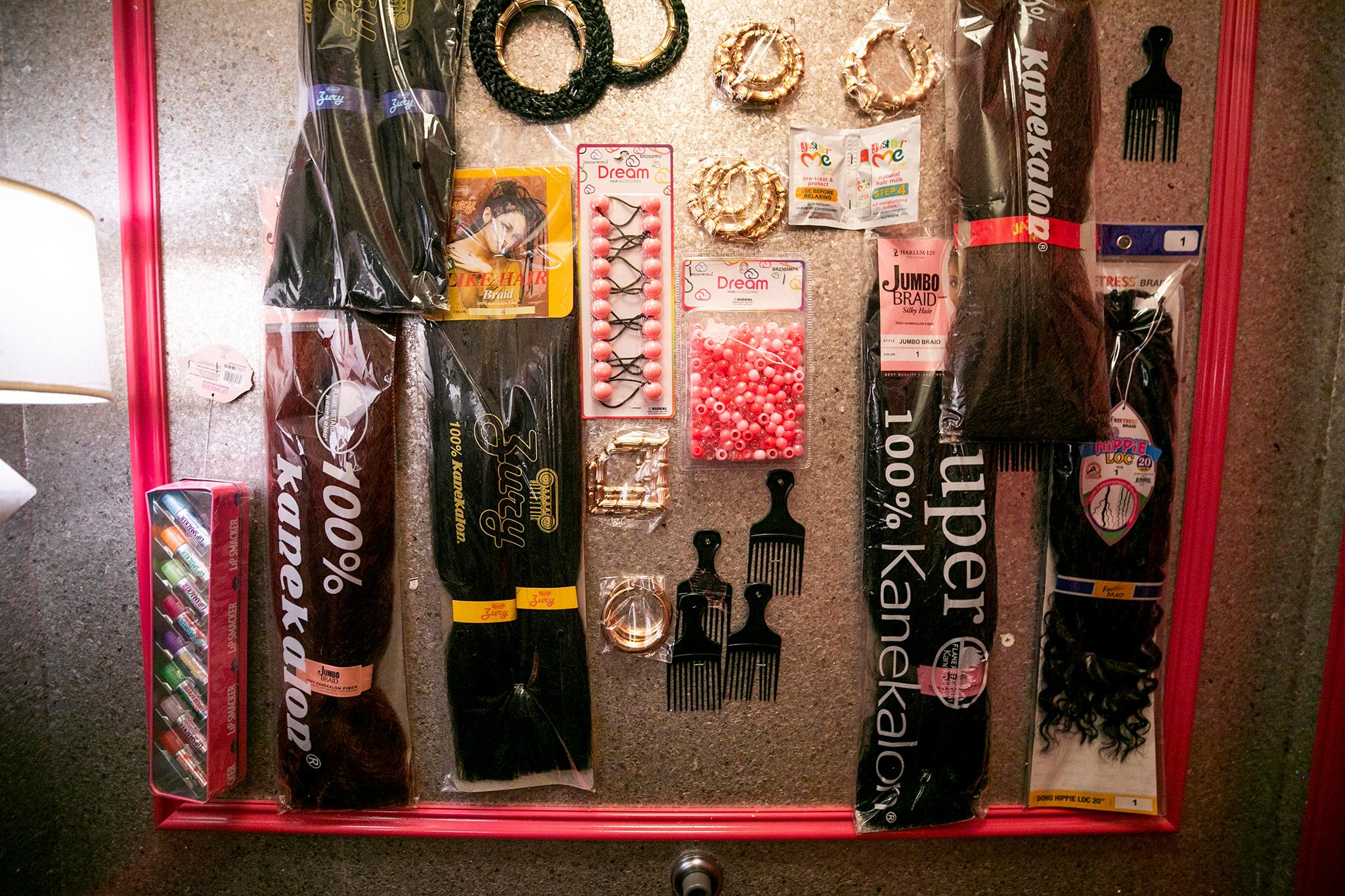
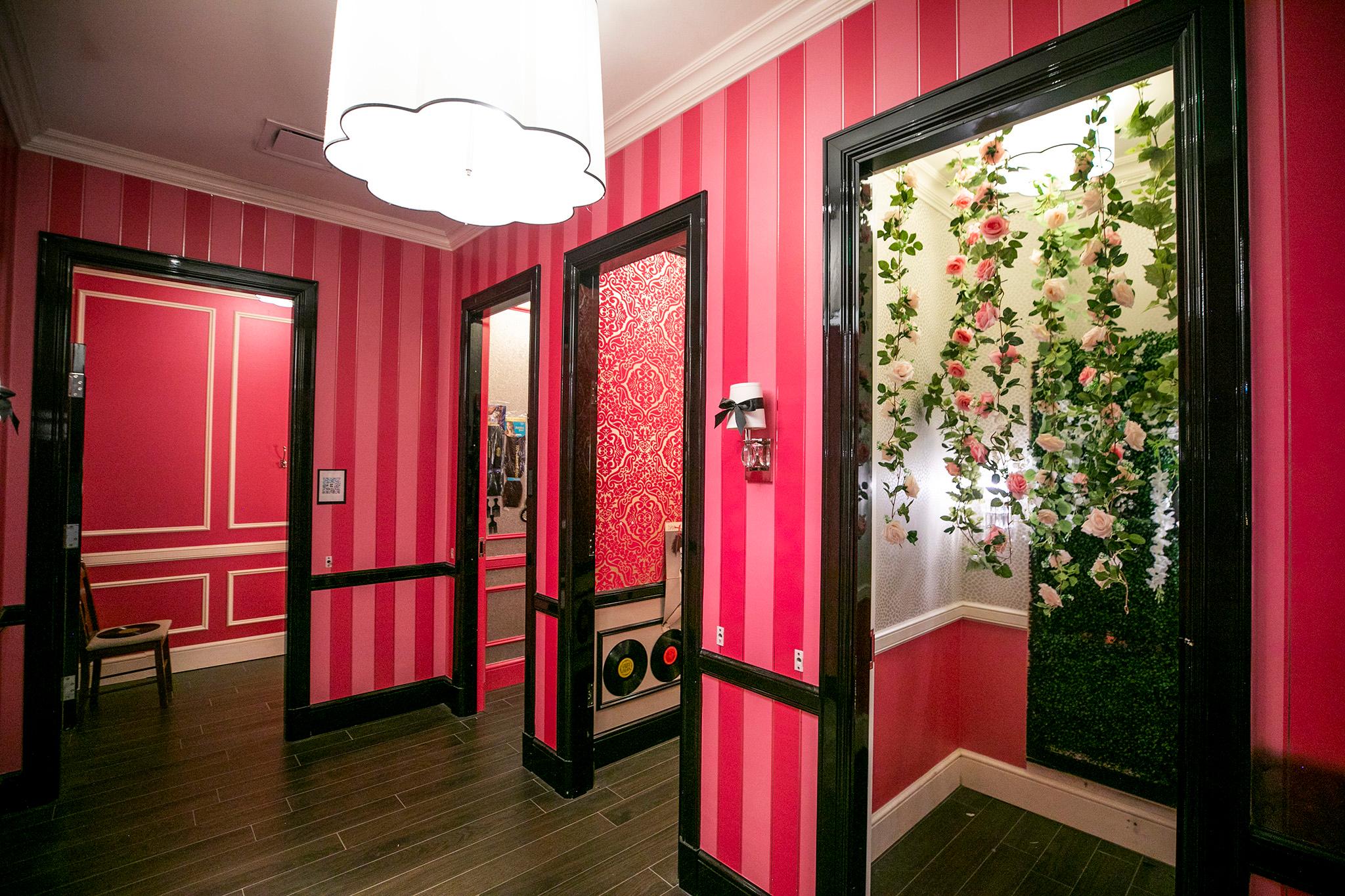
There's plenty of spaces for selfies, including dressing rooms that were turned into picturesque mini installations. Some of the rooms are a nod to that nostalgic shared experience, like the beauty supply store room filled with packets of braiding hair, barrettes and door knocker earrings.
Hair is a common theme throughout the museum with a section lead by Billingsley's "Grandma's Kitchen" piece, where hair rollers dangle from the ceiling, Blue Magic hair grease lines the walls, along with boxes of "Just for Me" perms.
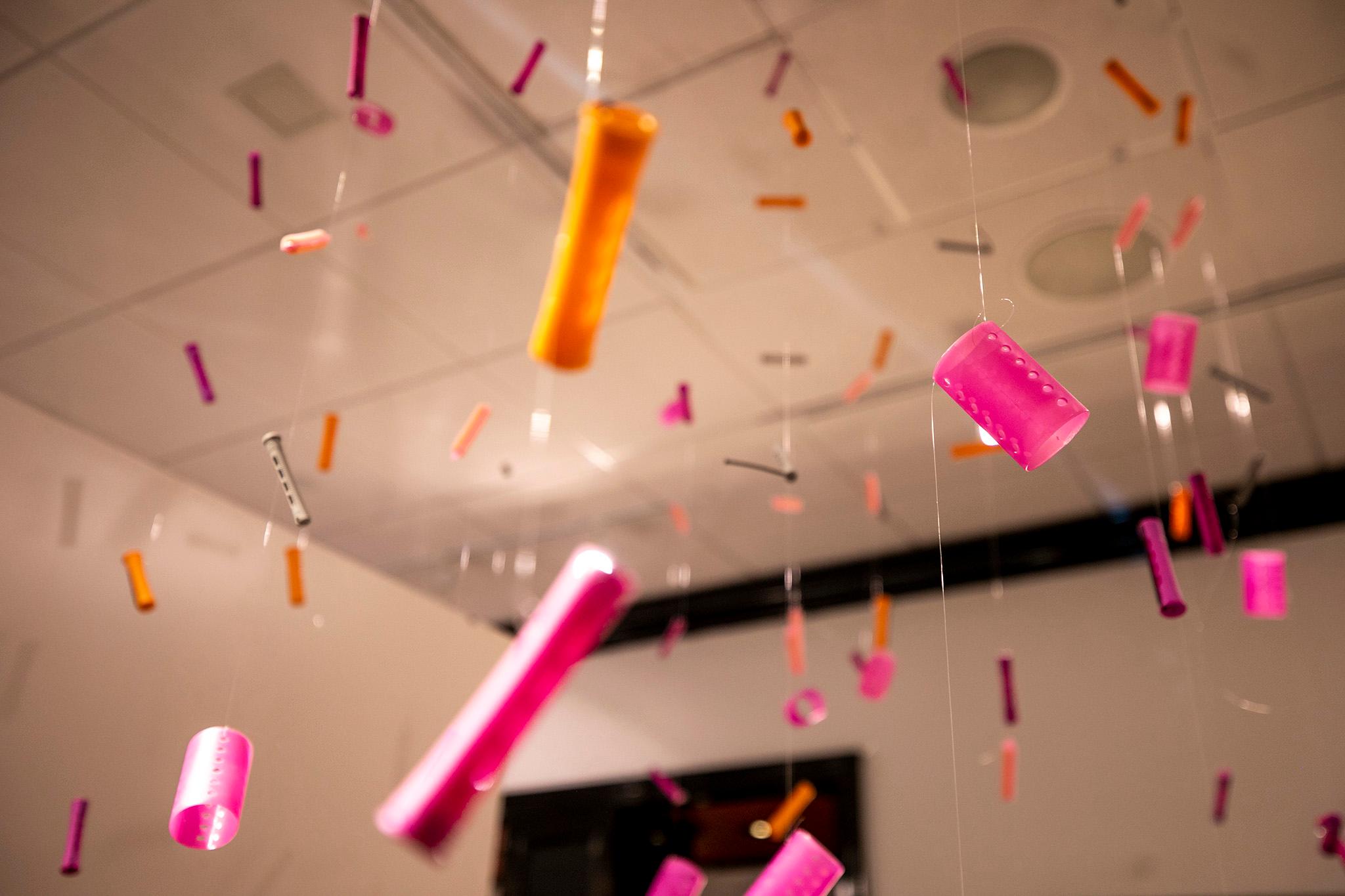
Then there's the Black women themselves. There's the inventor section with photos of Gladys West, the Black woman who helped develop the global positioning system and Shirley Jackson, the Black woman who helped create caller ID technology. Jackson is also the first Black woman to earn a doctorate at the Massachusetts Institute of Technology.
The "Iconic Black Women" wall is now a room filled with thousands of pictures of Black artists and performers. Local icons are also celebrated in the space, including Wilma Webb and Cleo Parker Robinson.
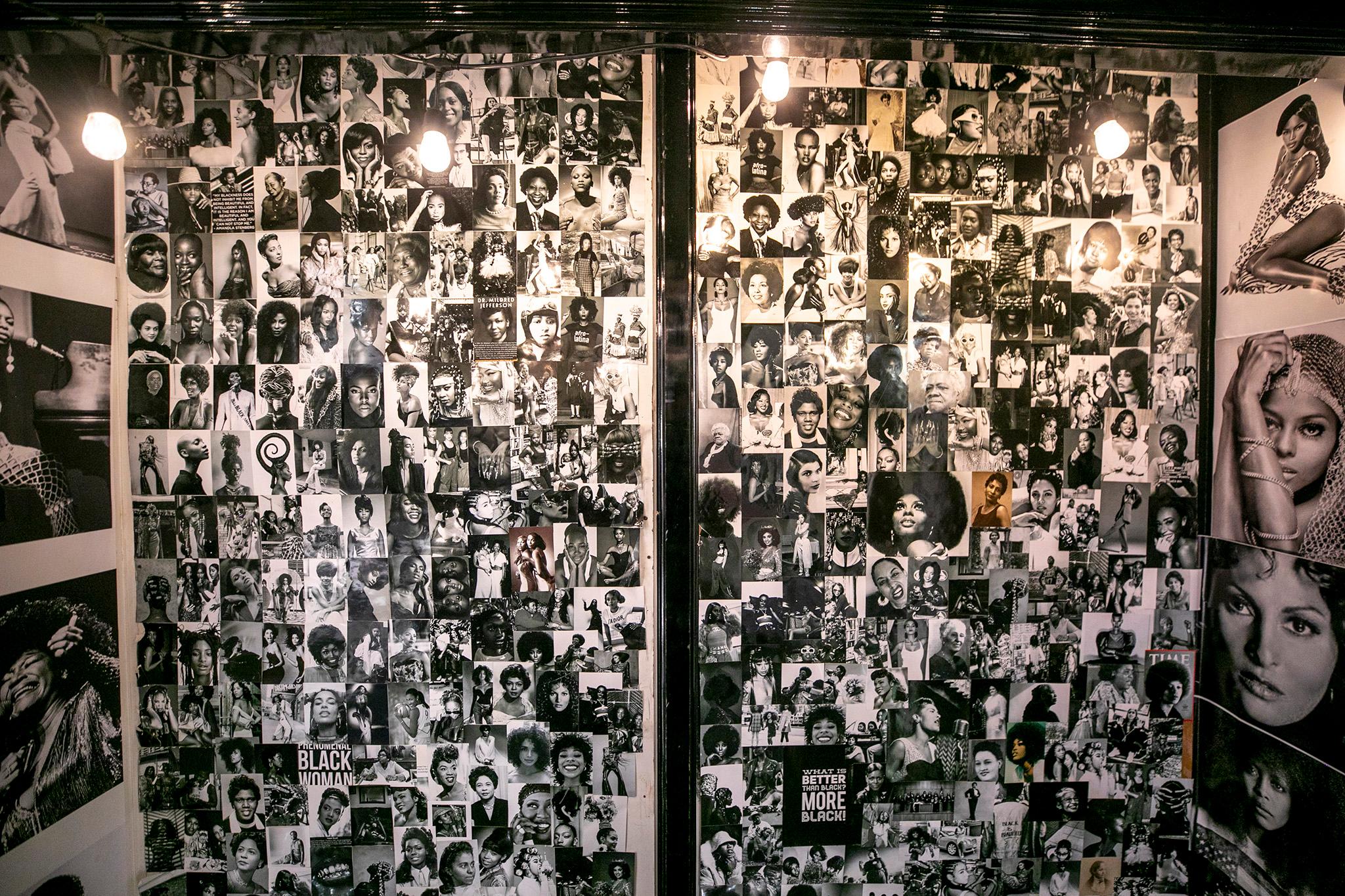
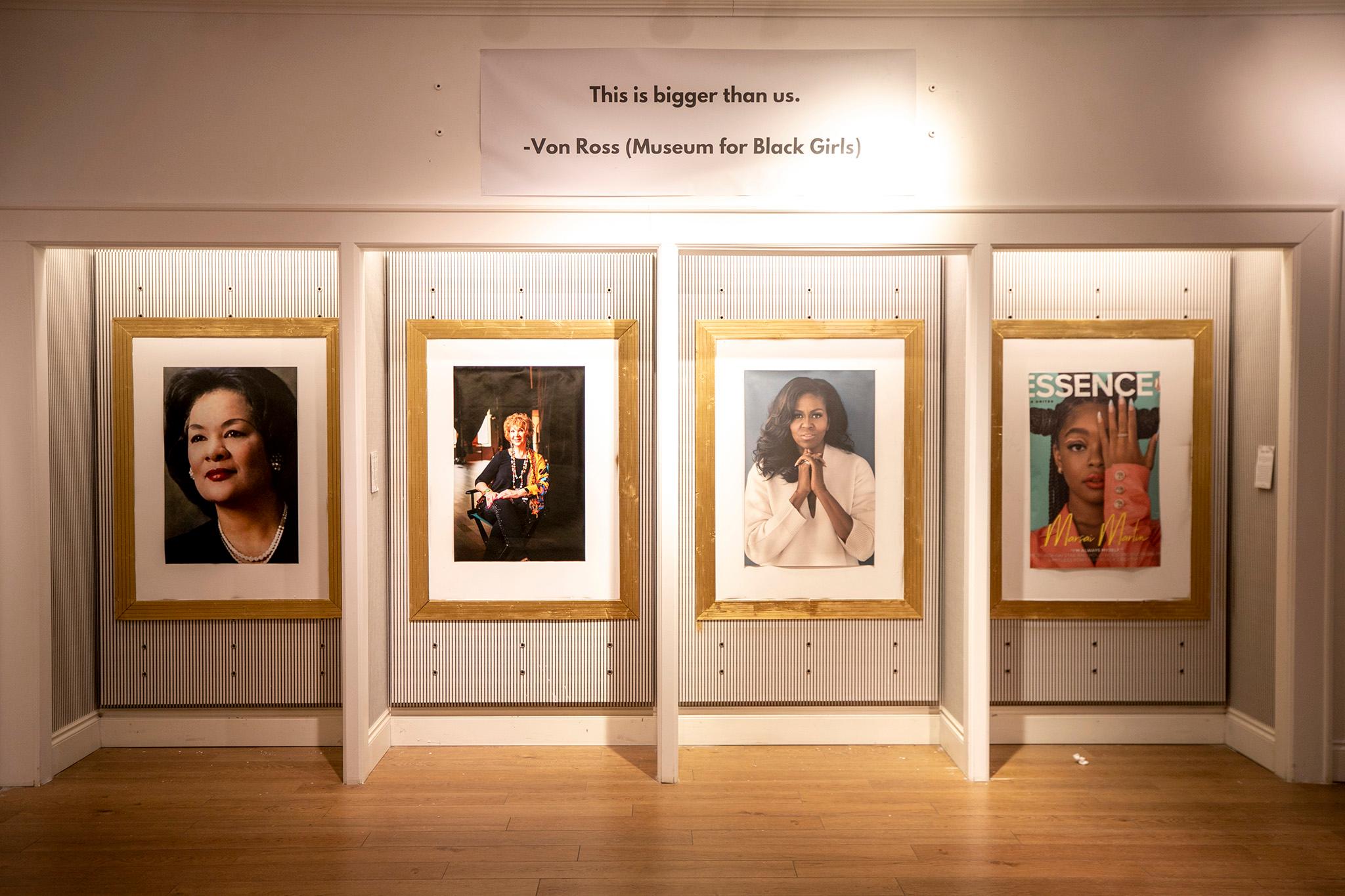
Printed out motivational quotes are displayed around the space, including one with Ross's line of "This is bigger than us" hanging over portraits of Wilma Webb and Cleo Parker Robinson.
There's the love letter wall where guests can write a letter to Black women and take one home. There's also the wall of affirmations, one of Billingsley's favorite installations. The wall is adorned with inspirational sayings and hopes, including a line from Billingsley's grandma that reads, "Dream it. Say it. Do it."
"We like to call it our magical wall," Billingsley said.
Through the Popup Denver program, the museum will sit at its current location for about a year.
Billingsley would like to continue having pop-ups across the U.S. to continue spreading the message, but Denver is home and finding a permanent location in the city is the goal.
Billingsley said the space is for everyone to enjoy and she hopes people continue feeling a sense of belonging and learn a thing or two about Black Girl Magic.
"It's important to have spaces like these or other Black spaces in Denver to feel a belonging, to feel seen," Billingsley said. "We always say we want people to leave feeling motivated, uplifted, empowered, inspired, but most importantly, I want people to leave knowing Black women did this ish...We're working really hard to make it a permanent space because people in Denver need it. Black women need it, black girls need it, the culture needs it, the city needs it."
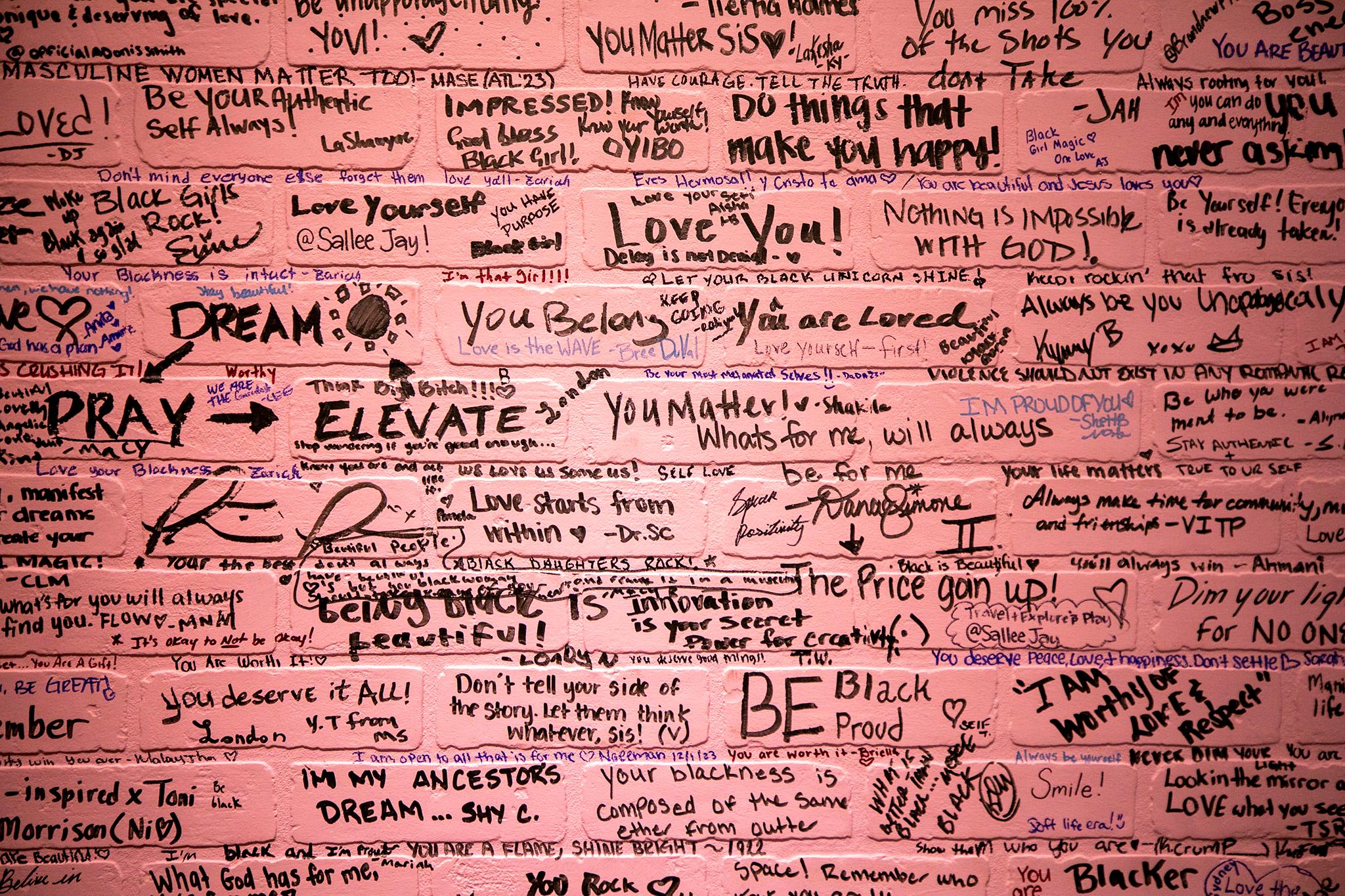
The museum is open Wednesday through Sunday from 11 a.m. to 7 p.m. Tickets are $30 for adults and admissions are half off every Wednesday. All tickets can be purchased online. The museum also offers private rentals, content photoshoots and will soon host First Friday events. Billingsley and Ross were also selected to display their work at the University of Colorado Boulder through the school's new socially engaged artists-in-residence program, which seeks to highlight artist who focus on social issues. That exhibit will open Feb. 9.
But one unanswered question, what is the deal with all the flowers?
"We're giving Black girls their flowers. They deserve them," Billingsley said. "What other place can you go to as a Black girl, where you feel like that? Like, hold up, this is a space for me and it's beautiful? This is your world and we created it for you and we're happy about that. To be able to tell Black women, there is space for you and there's a space to celebrate you. We thank you."
